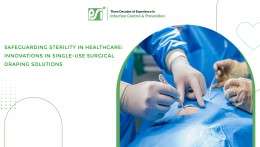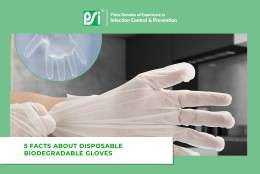One of the best Surgical Disposables company. I am dealing with them for the past 5 years,
their products are world-class. Their approach to trade is professional. All the best wishes to
them.
Essential Safety Tips for Healthcare Workers: Proper Use and Disposal of Disposable Medical Waste
- By: Plasti Surge Industries

One of the main factors that must be taken into account in order to ensure healthcare device safety is the correct use and disposal following its use of convergent disposable medical products. Disposable items in the health sector have to be treated meticulously to avoid spread of infections as well as a burden to the environment. Disposable Medical Products and How to Handle and Dispose of them Safely is a guide to handling and disposing of disposable medical products safely, protecting both healthcare workers and patients.
Understanding Medical Waste Categories
- Sharps – such as needles, scalpels, and broken glass.
- Infectious Waste: These materials are contaminated with blood, body fluids or other potentially infectious material, and are capable of transmitting an infection.
- Pathological: human tissue, body parts and organs.
- Pharmaceutical Waste- expired/unused medications and vaccines
- Hazardous Material: Lab or clinical chemicals that are to be discarded.
- Domestic waste-like non-hazardous waste (general waste)
Proper Use of Disposable Medical Equipment
- Training and Education: Provide training for all healthcare workers on how to use and dispose of single-use medical devices to maintain safety standards. Good training programs emphasize the training of proper handling of disposable medical supplies to avoid contamination and guarantee patient safety.
- Single use policy : Adhere strongly to the significance of single-use items so as to not mix contaminated instruments and to ensure safety for the patient and staff. This policy guarantees that medical instruments are employed and removed properly, without carrying out procedures in a non-sterile environment.
- Personal Protective Equipment (PPE): Preserving the health of each medical staff member is of utmost importance, so whenever using disposable medical supplies, gloves, gowns, masks, etc, are necessary to prevent contact with unsafe contents. Correct application of PPE reiterates not to reuse disposable items to reduce transmission of infections.
- Sharps: These have potential to spread pathogens so use safety-engineered sharps devices for the importance of single-use medical devices (e. g. needles). Note that the needles should not be re-capped after use to prevent accidents and to preserve the sterility of the disposable materials.
Segregation of Medical Waste
- Color-Coded Bins: The simplest intervention, the best of the best practice, is to label your bins, have a bin that to put things in for disposal around you and then having color-coded bins. While single-use items undergo extensive use in practice, this system propagates the Importance of single-use items to prevent cross-contamination and create a sterile environment.
- Labeling: It is important to label all waste containers so that the type of waste is known and disposable medical supplies can be disposed of correctly. Its proper labeling emphasizes the significance of the disposable products to be handled and disposed rightly.destroyAllWindows the.Dispose of.Filter text applications.
- Point of Use: Locate the waste containers next to the point of use to both minimize the amount of handling and transporting that would occur and to also help in decreasing possible injury or contamination to assure all disposable medical supplies are safely disposed of. It stresses the value of disposable medical kits in order to keep the healthcare industry safe and productive.
Safe Disposal Practices
- Sharps Disposal: Sharps should be discarded in puncture-resistant, leak-proof containers. You may reuse them, but dispose of them right after.
- Infectious Waste: Use an autoclave or incineration to kill disease-causing organisms in the waste before it is sent to a landfill.
- Pharmaceuticals: Dispose of pharmaceuticals in accordance with specific guidelines for drugs including returning some directly to the manufacturer, encouraging programs for authorized disposal.
- Chemical Waste: As dangerous reactions and environmental damage might occur if these chemical waste are allowed to be effluent untreated, hence these waste must be treated and processed, storage & disposal must be in accordance with relevant local & national regulations.
Environmental Considerations
- Minimize Waste: Implement ways to reduce the amount of disposable medical waste being generated daily, such as reusing items where safe, practical and workable.
- Eco-Friendly Alternatives: Use biodegradable or recyclable materials as much as it is possible.
- Waste Treatment Technologies: Adopt and adapt to advanced waste treatment technologies with the mindset that they are environmentally friendly and efficient.
Regulatory Compliance

- Stay Informed: Regularly keep up-to-date with the local, state, and Central Govt. regulations regarding Healthcare device safety.
- Documentation: Always maintain precise and faultless records of waste generation, handling, and disposal to ensure compliance and traceability.
- Audits and Inspections: Consistently manage audits and inspections to ensure that the safety and regulatory standards are adhered to.
Promoting a Safety Culture
- Awareness Campaigns: Running methodical campaigns to raise awareness emphasizes the importance of proper medical waste management.
- Reporting Systems: Lay down a foundation for reporting and communicating any issues or incidents related to medical waste and its subsequent disposal.
- Continuous Improvement: Reinforce the practice of consistent feedback and continuously look for ways to upgrade waste management practices.
Healthcare personnel greatly lessen the hazards concerning medical waste by these crucial precautionary measures, safeguarding themselves, others, and the environment in general. Correct medical waste handling and disposal are both regulatory and patient safety and public health issues.
Conclusion
It is very important to use and the appropriate disposal of disposable medical waste for the safety of health devices and preservation of sterile conditions. Bloodborne pathogens training is also an important safety tip which can help health care workers to keep them minimize the risk of containers with sharps and other forms of regulated waste, all while further contributing to the safe, protective, and environmentally-safe disposal of human blood samples and medical waste materials. Visit Plasti Surge Industries Pvt. Ltd. for more in-depth disposable medical supply tips and resources to learn more about the single use nature of these items.
So now you know how to apply the right way of medical waste management in your healthcare facility. Discover the world of products & solutions for Safety & Efficiency in Plasti Surge Industries Pvt. Ltd. Take a vow to a cleaner, safer health care environment now!
One of the best companies to partner with. Very responsive and best product quality.
Good experience and corporation for many years. Timely services are provided.
We have been associated with PSI since more than 20 years now. They have superior products, prompt service & courteous people. Using PSI’s products in turn makes our customer happy and helps us to do more business. Overall truly delighted with their customer service.

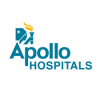

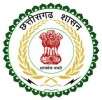
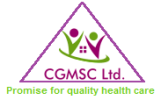
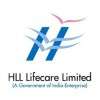
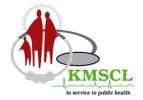



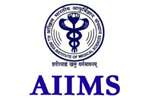
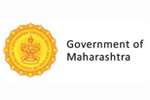

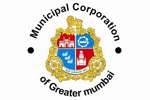
_iCEz.jpeg)
 +91-7798800781
+91-7798800781
